News & Event


News & Event
News & Event
'Rebuild Korea’s NIS'... 2020 NIS Forum, held by KISTEP
- Writer Gyuha Jo
- Date2020-02-06
- Hit1,069
File
-
Download
 20200206153705.jpg
(349.21KB / Download 304회)
20200206153705.jpg
(349.21KB / Download 304회)
What will the future derived by S&T look like? In the 2020s, a meeting was held to discuss the national technology innovation system to achieve the Gross National Income (GNI) $ 40,000 per capita and to lead the nation's innovative growth.
The Korea Institute of Science and Technology Evaluation and Planning (KISTEP, President Sang-seon Kim) held the KISTEP National Innovation System Forum under the topic of ‘Rebuild Korea’s NIS 2020s’ at the El Tower in Yangjae on February 6th, 2020.
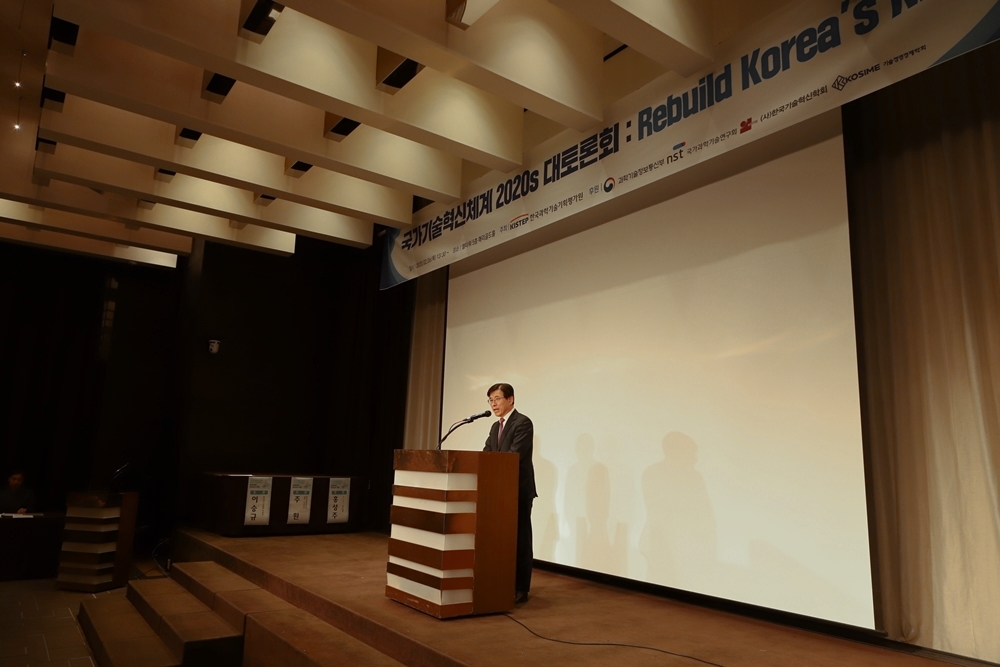
▲ Sang-seon Kim (President of KISTEP)
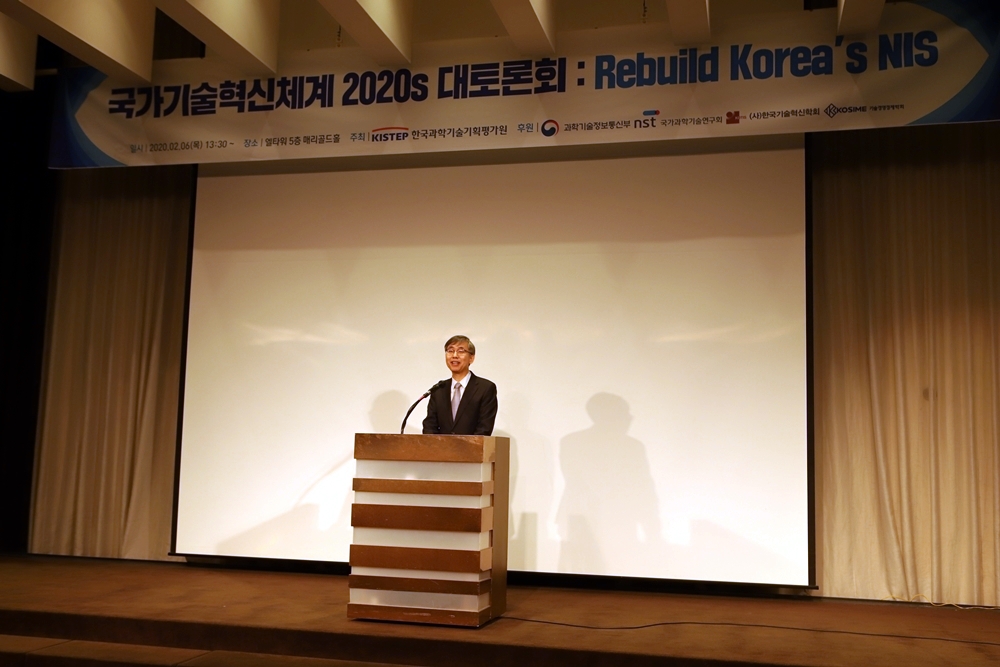
▲ Sung-Soo Kim (Director of S&T Innovation Division, MSIT)
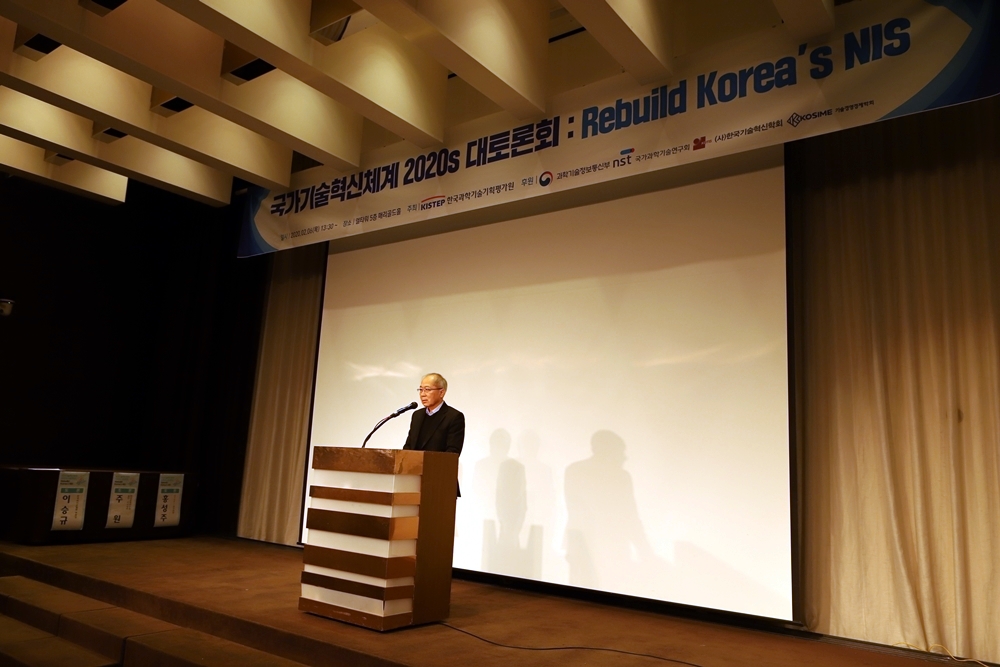
▲ Kwangyun Wohn (Chairperson of National Research Council of Science and Technology, NST)
The forum was held to present strategies and policy tasks to support the development of national innovation system and innovation growth that will create a new S&T-oriented society in the 2020s. In particular, by focusing on the prospect that the potential growth rate of the Korean economy will drop to 1% after the mid-2020s (Hyundai Economic Research Institute, 2019), the necessity of major transformation of the National Innovation System (NIS) was emphasized as an alternative.
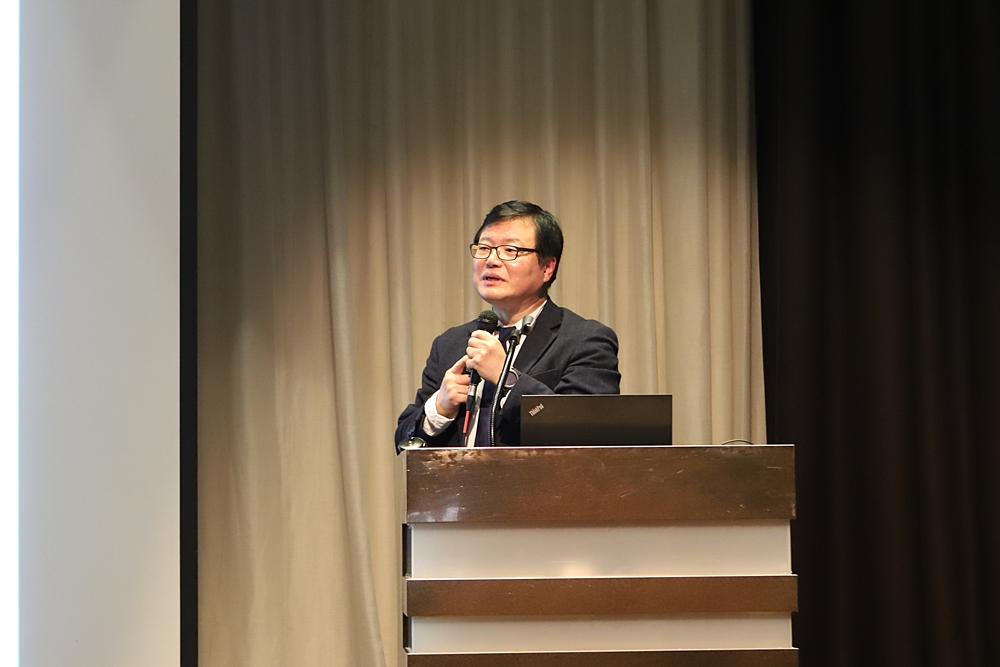
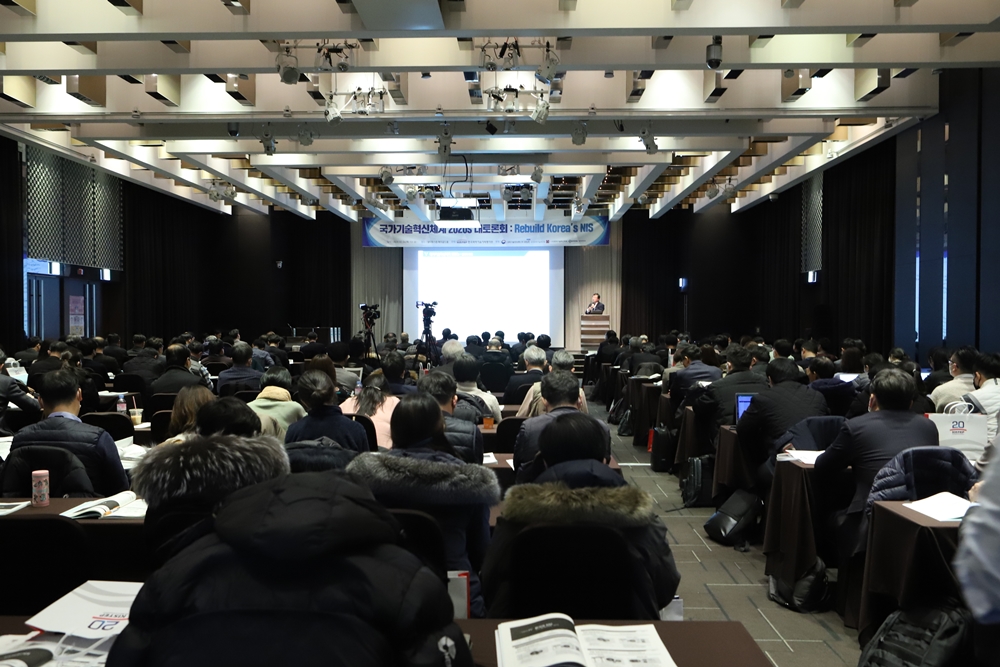
▲ Jang-jae Lee (Director of Research Institute of S&T Innovation and Strategy, KISTEP)
[Session 1] consisted of presentations and discussions on the topic of “NIS 2020s: Strategy and Tasks”. Jang-jae Lee (Director of Research Institute of S&T Innovation and Strategy, KISTEP) presented the suggestion for NIS required in the 2020s of aiming for the GNI $ 40,000. He said, "as Korea is now in a period of new technological innovation required for the 4th Industrial Revolution, it is urgent to pursue innovation growth through the interconnection of Industry-University-Research Institute-Government innovators and to create sophisticated national strategies and related ecosystems”. In this regard, he have suggested strategies for implementation and top 10 policy tasks.
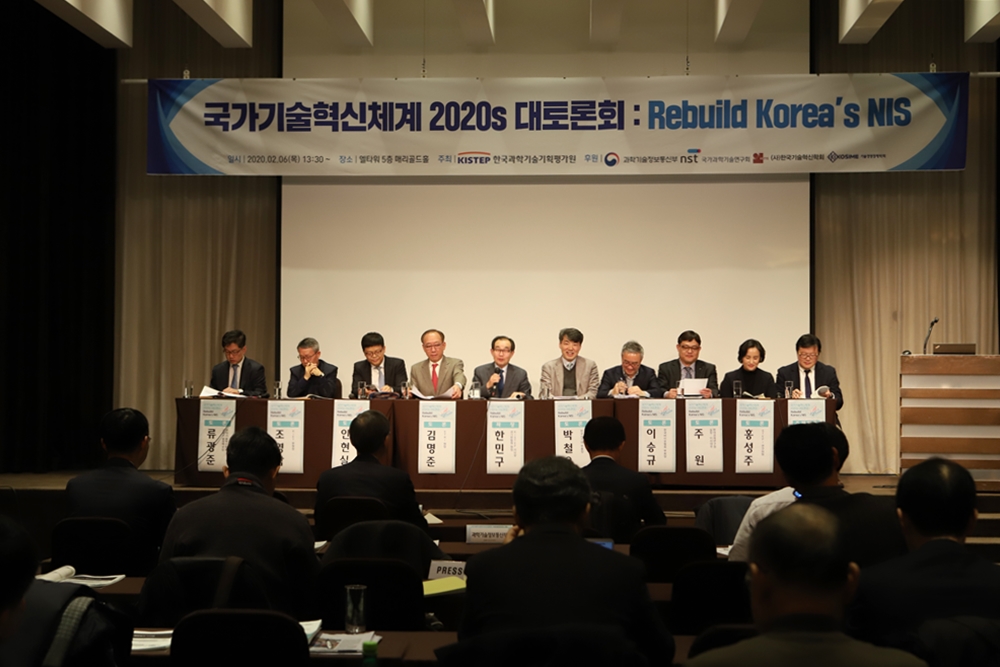
▲ [Session 1] Panel Discussion
Following debate was led by Min-koo Han (President of The Korean Academy of Science and Technology, KAST), with participants including Director of S&T Policy Bureau (S&T Innovation Division, MSIT), Myung Joon Kim (President of Electronics and Telecommunications Research Institute, ETRI), Hyunsil Ahn (Editiorialㆍresearch fellow of The Korea Economic Daily), Seung-Kyou Lee (Vice President of Korea Biotechnology Industry Organization, KoreaBio), Young-sam Cho (Vice President of Korea Institute for Industrial Economics & Trade, KIET), Won Joo (Director of Hyundai Research InstituteㆍCEO treated, HRI), Sung Joo Hong (Research Fellow of Science and Technology Policy Institute, STEPI) to share various opinions for the transformation of NIS.
[Session 2] consisted of presentations and discussions on the topic of 'The Future of S&T and Human Resources', 'Directions for Regional Innovation in the Local Decentralized Era,' and 'Methods for Improving Performance in the Age of Government R&D 30 trillion Won.'
In the first presentation, Jung-Jae Lee (Director of Center for HRST Policy, KISTEP) discussed the ‘Agenda of the Aged Social HRST Policy’ in relation to the ‘Future of S&T and HR: Forecasts and Countermeasures’. He pointed out the current policy status of Korean society around the aged society in the 2020s, when Korea is expected to enter a super-aged society (20% of the elderly population), and proposed the agenda needed to supplement the current propel policy, to proactively respond to future changes, and to promote a desirable future society in terms of HRST policy.
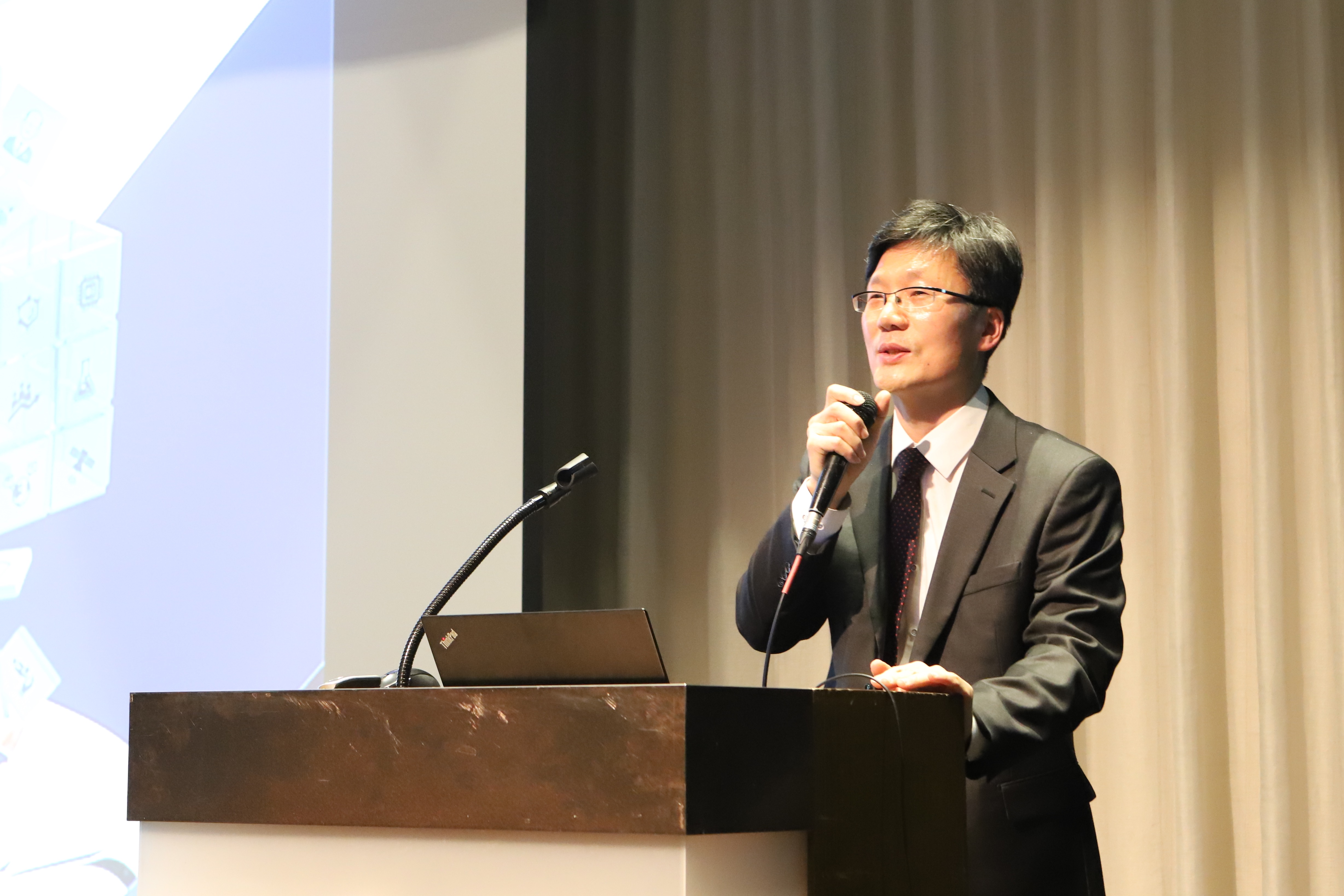
▲ Jung-Jae Lee (Director of Center for HRST Policy, KISTEP)
In the second presentation, Seong jin Kim (Head of Regional S&T Innovation Policy Team, KISTEP) discussed the ‘Direction of Regional Innovation’ under the topic of 'Agenda of Regional S&T Innovation Policy in the Decentralized and Autonomous Age'. He reviewed the progress of existing regional S&T innovation policies such as the ‘5th Regional S&T Promotion Plan ('18 ~ 22)', 'National R&D Innovation Plan ('18 .7)', and 'Reorganization Plan of Local R&D Innovation System ('19 .8)', and suggested roles and cooperation plans for each central and local government and innovation actors.
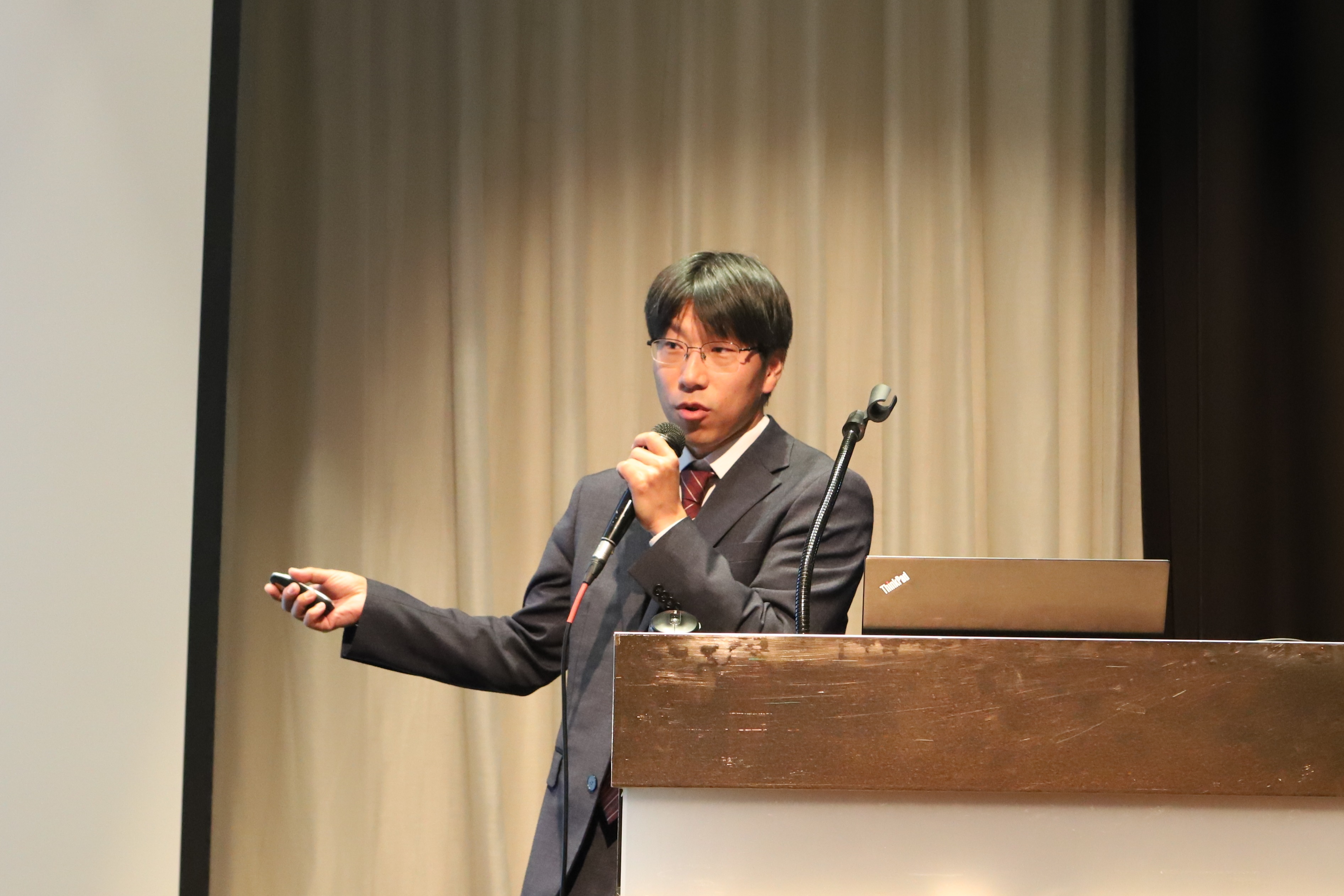
▲ Seong jin Kim (Head of Regional S&T Innovation Policy Team, KISTEP)
Lastly, Hyun-Jeong Cho (Director of Center for R&D Performance Diffusion, KISTEP) focused on the transformation of the government R&D system under the topic of “innovative R&D performance improvement plan for the era of government R&D 30 trillion won”. She emphasized, "as discontinuous innovation and external cooperation become important, system innovation is essential for achieving innovation outcomes, and a balanced view of integrationㆍcoordination and autonomyㆍresponsibility is required", and suggested the key issues and directions for improvement from the perspective of the R&D system.
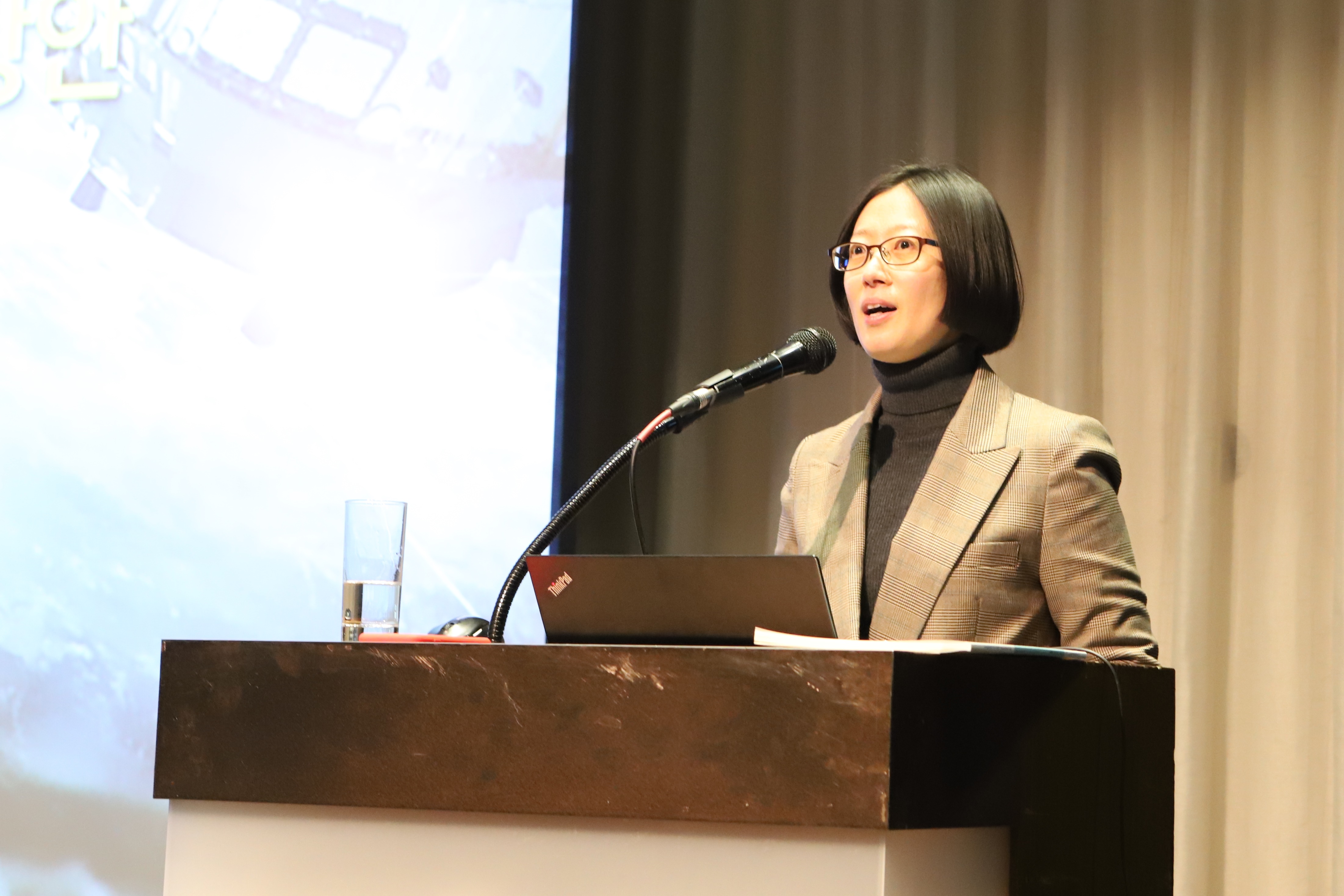
▲ Hyun-Jeong Cho (Director of Center for R&D Performance Diffusion, KISTEP)
Following debate was led by Wonjong Joo (Professor of Seoul National University of S&T, SEOULTECH), with participants including Mi-Young Song (Director of Convergence Research Office, NST), Mun-Su Park (Professor of the State University of New York, SUNY), Chang-Hwan Kim (Senior Research Fellow of Korean Educational Development Institute, KEDI), Youngsub Kwon (Senior Research Fellow of Korea Research Institute for Human Settlements, KRIHS), Young-Soo Kim (Senior Research Fellow of Korea Institute for Industrial Economics & Trade, KIET) to discuss future tasks in various fields of S&T policy, such as HRST, regions, and improving research achievements.
Sang-seon Kim (President of KISTEP) said, “S&T must play a pivotal role in opening the era of GNI $ 40,000 in the 2020s” in his opening address, by emphasizing “during the 4th Industrial Revolution, the emergence of new S&T and new industries that induce the Big Bang is expected, therefore, the government needs to put priority on building NIS, creating an ecosystem, fostering HR, and cultivating entrepreneurship”. He finalized his address with aspiration, “KISTEP, the Think Tank of S&T innovation strategy, will build a new S&T-oriented society required for the 4th Industrial Revolution and strive for successful promotion of innovation growth”.
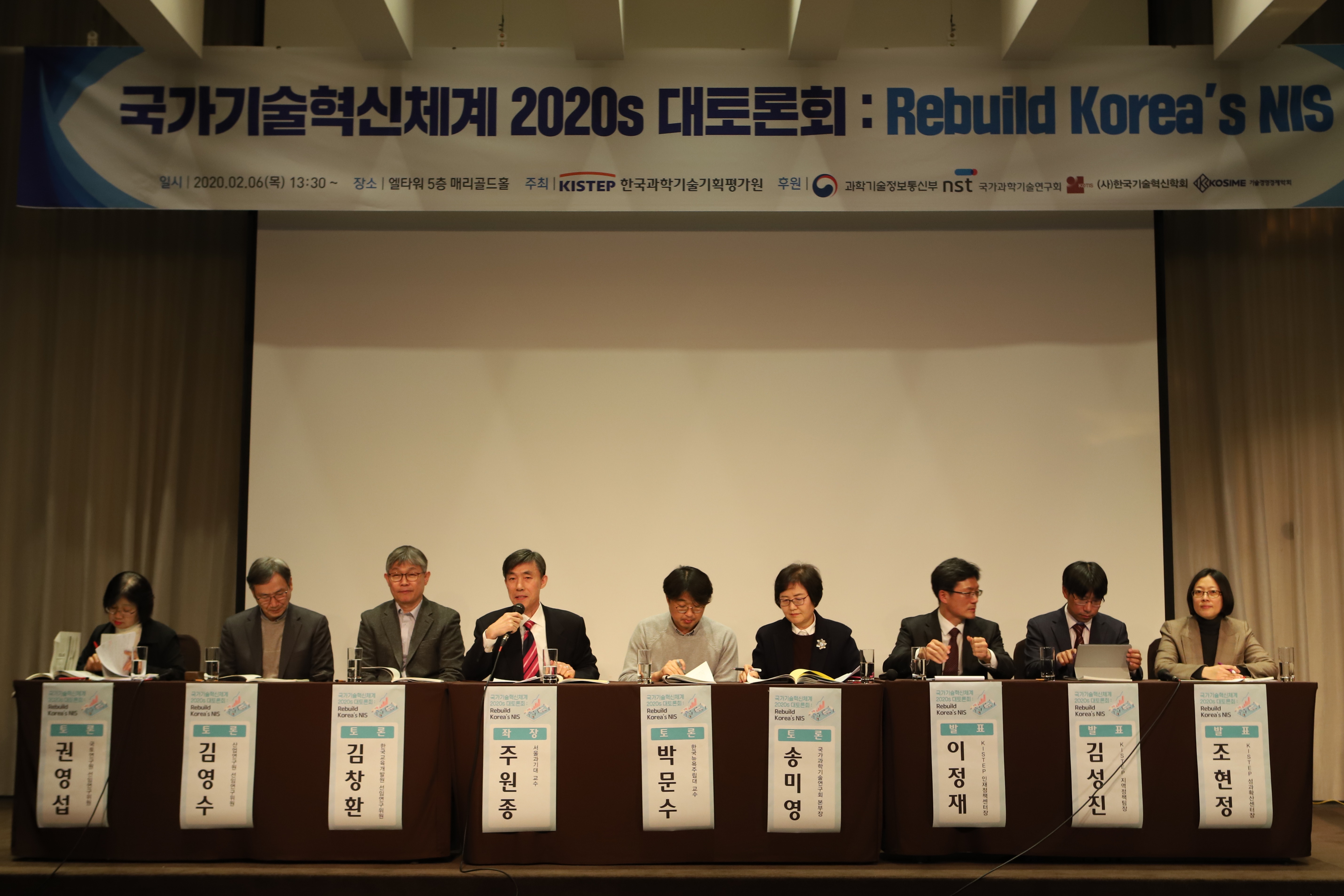
▲ [Session 2] Panel Discussion
The Korea Institute of Science and Technology Evaluation and Planning (KISTEP, President Sang-seon Kim) held the KISTEP National Innovation System Forum under the topic of ‘Rebuild Korea’s NIS 2020s’ at the El Tower in Yangjae on February 6th, 2020.

▲ Sang-seon Kim (President of KISTEP)

▲ Sung-Soo Kim (Director of S&T Innovation Division, MSIT)

▲ Kwangyun Wohn (Chairperson of National Research Council of Science and Technology, NST)
The forum was held to present strategies and policy tasks to support the development of national innovation system and innovation growth that will create a new S&T-oriented society in the 2020s. In particular, by focusing on the prospect that the potential growth rate of the Korean economy will drop to 1% after the mid-2020s (Hyundai Economic Research Institute, 2019), the necessity of major transformation of the National Innovation System (NIS) was emphasized as an alternative.


▲ Jang-jae Lee (Director of Research Institute of S&T Innovation and Strategy, KISTEP)
[Session 1] consisted of presentations and discussions on the topic of “NIS 2020s: Strategy and Tasks”. Jang-jae Lee (Director of Research Institute of S&T Innovation and Strategy, KISTEP) presented the suggestion for NIS required in the 2020s of aiming for the GNI $ 40,000. He said, "as Korea is now in a period of new technological innovation required for the 4th Industrial Revolution, it is urgent to pursue innovation growth through the interconnection of Industry-University-Research Institute-Government innovators and to create sophisticated national strategies and related ecosystems”. In this regard, he have suggested strategies for implementation and top 10 policy tasks.

▲ [Session 1] Panel Discussion
Following debate was led by Min-koo Han (President of The Korean Academy of Science and Technology, KAST), with participants including Director of S&T Policy Bureau (S&T Innovation Division, MSIT), Myung Joon Kim (President of Electronics and Telecommunications Research Institute, ETRI), Hyunsil Ahn (Editiorialㆍresearch fellow of The Korea Economic Daily), Seung-Kyou Lee (Vice President of Korea Biotechnology Industry Organization, KoreaBio), Young-sam Cho (Vice President of Korea Institute for Industrial Economics & Trade, KIET), Won Joo (Director of Hyundai Research InstituteㆍCEO treated, HRI), Sung Joo Hong (Research Fellow of Science and Technology Policy Institute, STEPI) to share various opinions for the transformation of NIS.
[Session 2] consisted of presentations and discussions on the topic of 'The Future of S&T and Human Resources', 'Directions for Regional Innovation in the Local Decentralized Era,' and 'Methods for Improving Performance in the Age of Government R&D 30 trillion Won.'
In the first presentation, Jung-Jae Lee (Director of Center for HRST Policy, KISTEP) discussed the ‘Agenda of the Aged Social HRST Policy’ in relation to the ‘Future of S&T and HR: Forecasts and Countermeasures’. He pointed out the current policy status of Korean society around the aged society in the 2020s, when Korea is expected to enter a super-aged society (20% of the elderly population), and proposed the agenda needed to supplement the current propel policy, to proactively respond to future changes, and to promote a desirable future society in terms of HRST policy.

▲ Jung-Jae Lee (Director of Center for HRST Policy, KISTEP)
In the second presentation, Seong jin Kim (Head of Regional S&T Innovation Policy Team, KISTEP) discussed the ‘Direction of Regional Innovation’ under the topic of 'Agenda of Regional S&T Innovation Policy in the Decentralized and Autonomous Age'. He reviewed the progress of existing regional S&T innovation policies such as the ‘5th Regional S&T Promotion Plan ('18 ~ 22)', 'National R&D Innovation Plan ('18 .7)', and 'Reorganization Plan of Local R&D Innovation System ('19 .8)', and suggested roles and cooperation plans for each central and local government and innovation actors.

▲ Seong jin Kim (Head of Regional S&T Innovation Policy Team, KISTEP)
Lastly, Hyun-Jeong Cho (Director of Center for R&D Performance Diffusion, KISTEP) focused on the transformation of the government R&D system under the topic of “innovative R&D performance improvement plan for the era of government R&D 30 trillion won”. She emphasized, "as discontinuous innovation and external cooperation become important, system innovation is essential for achieving innovation outcomes, and a balanced view of integrationㆍcoordination and autonomyㆍresponsibility is required", and suggested the key issues and directions for improvement from the perspective of the R&D system.

▲ Hyun-Jeong Cho (Director of Center for R&D Performance Diffusion, KISTEP)
Following debate was led by Wonjong Joo (Professor of Seoul National University of S&T, SEOULTECH), with participants including Mi-Young Song (Director of Convergence Research Office, NST), Mun-Su Park (Professor of the State University of New York, SUNY), Chang-Hwan Kim (Senior Research Fellow of Korean Educational Development Institute, KEDI), Youngsub Kwon (Senior Research Fellow of Korea Research Institute for Human Settlements, KRIHS), Young-Soo Kim (Senior Research Fellow of Korea Institute for Industrial Economics & Trade, KIET) to discuss future tasks in various fields of S&T policy, such as HRST, regions, and improving research achievements.
Sang-seon Kim (President of KISTEP) said, “S&T must play a pivotal role in opening the era of GNI $ 40,000 in the 2020s” in his opening address, by emphasizing “during the 4th Industrial Revolution, the emergence of new S&T and new industries that induce the Big Bang is expected, therefore, the government needs to put priority on building NIS, creating an ecosystem, fostering HR, and cultivating entrepreneurship”. He finalized his address with aspiration, “KISTEP, the Think Tank of S&T innovation strategy, will build a new S&T-oriented society required for the 4th Industrial Revolution and strive for successful promotion of innovation growth”.

▲ [Session 2] Panel Discussion